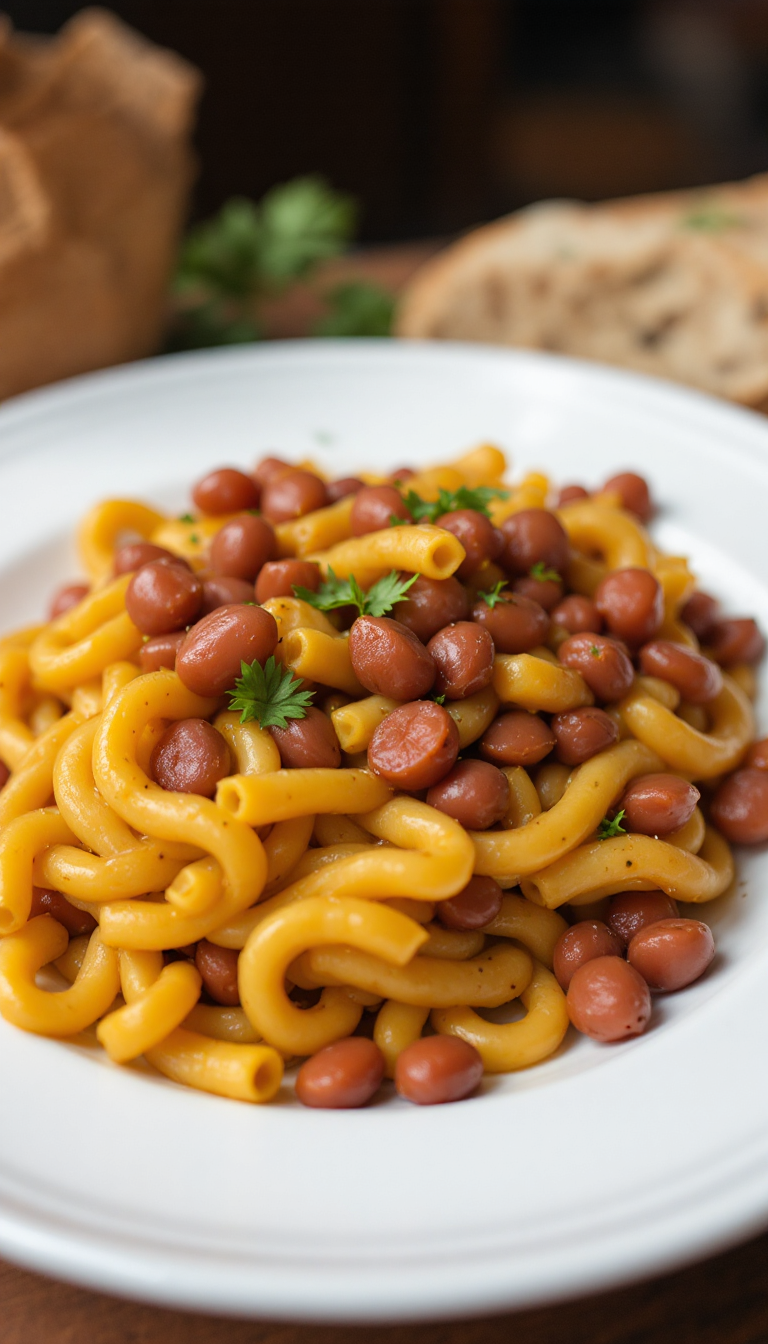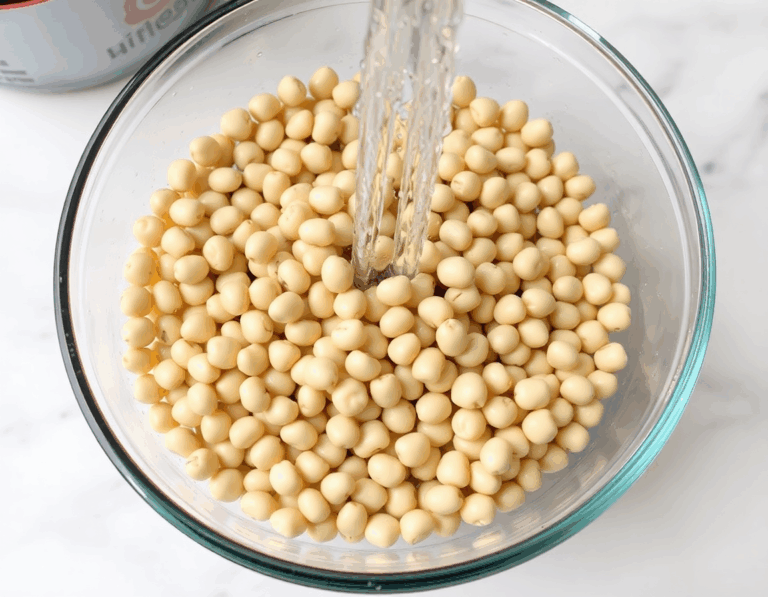
Lupini beans—these little buttery gems—have been sneaking their way into my kitchen more often lately. Maybe it’s their satisfying texture or the way they effortlessly soak up flavors, but I find myself craving them in everything from salads to stews. If you’ve been curious about these protein-packed wonders, or if you’re just looking for a way to jazz up dinner, you’re in for a treat.
Steps
- Begin by sorting and rinsing the dry lupini beans to remove any damaged or discolored beans. Place the beans in a glass bowl and soak them in cold water for 24 hours, ensuring they are fully submerged.
- After soaking, drain and rinse the beans. Boil them in a large pot with cold water for 20 minutes, making sure they stay submerged by adding more water if necessary. Skim off any foam that forms on the surface.
- Drain and rinse the boiled beans with cold water, then place them in a glass bowl filled with fresh water. Refrigerate the beans, ensuring they are completely covered with water.
- For the next 14 days, rinse and change the water twice daily to remove bitterness. Begin tasting the beans after 5-7 days; they are ready once the bitter taste is gone, indicating a sweet and tender texture.
- Once devoid of bitterness, store the lupini beans in a large container with a brine solution made of 8 cups of water and 2 tablespoons of Kosher salt. Refrigerate them in an airtight container for up to two weeks.
- To serve, simply remove the desired amount, drain the brine, and place the beans in a serving bowl. Optionally, garnish with parsley for added flavor and presentation.

Ingredients
- 14 ounces (400 grams) of dry lupini beans
- Plenty of water for soaking and boiling
- 2 tablespoons of Kosher salt
- Parsley (optional, for garnish)
Nutritional Values
Calories: 1372kcal | Carbohydrates: 112g | Protein: 182g | Sodium: 13972mg | Potassium: 1050mg | Fiber: 32.2g | Vitamin A: 70IU | Vitamin C: 1.4mg | Calcium: 140mg | Iron: 5.6mg
FAQ
- What are lupini beans and where are they popular?
- Lupini beans are legumes, specifically the yellow seeds of the lupinus plant. They are grown in places like Australia and southwestern Europe, and they are a popular street food in Mediterranean, Middle Eastern, and Latin American countries.
- Are lupini beans safe to eat raw?
- No, lupini beans are not safe to eat raw because they contain high levels of alkaloids, which are toxic and cause a bitter taste. They need to be soaked and rinsed over several days to remove these alkaloids before they are safe to consume.
- How do lupini beans benefit one’s diet?
- Lupini beans are a rich source of protein, second only to soybeans among legumes. They are also high in fiber and provide essential nutrients like Vitamin K, Vitamin C, potassium, and manganese.
- What is the process to prepare lupini beans at home?
- Preparing lupini beans involves soaking them in water for 24 hours, boiling them for 20 minutes, and then rinsing and soaking them daily in fresh water for up to two weeks until they lose their bitterness and become sweet and tender.
- How should lupini beans be stored after preparation?
- Once lupini beans are ready, they should be stored in a brine solution with water and salt in an airtight container and kept refrigerated. They can last for about two weeks in the fridge.
Tips
- Daily Soaking Routine: Ensure you are available daily to soak and rinse the lupini beans, as this process can take up to two weeks. Consistency in this routine is crucial to remove the bitter alkaloids and make the beans safe and enjoyable to eat.
- Boiling Tips: After the initial 24-hour soak, boil the lupini beans vigorously for about 20 minutes. Remember to keep them fully submerged by adding water if necessary, and skim off any foam that forms during boiling to improve the final taste and texture.
- Taste Test for Readiness: Start tasting the beans after 5-7 days of soaking and rinsing. They are ready when the bitterness is completely gone, leaving a sweet and tender bean. This process can sometimes extend to two weeks, so be patient.
- Storage Advice: Once the bitterness is gone, store the lupini beans in a brine made of 2 tablespoons of Kosher salt per 8 cups of water. Keep them in an airtight container in the refrigerator, where they can last for up to two weeks.
Equipment
- Large Heavy-Bottomed Pot – Useful for boiling the lupini beans.
- Large Glass Bowl – For soaking and storing the beans during the preparation process.
- Mason Jars or Large Airtight Containers – For storing the brined lupini beans in the refrigerator.
- Skimmer – To skim the foam off the boiling water during the cooking process.
